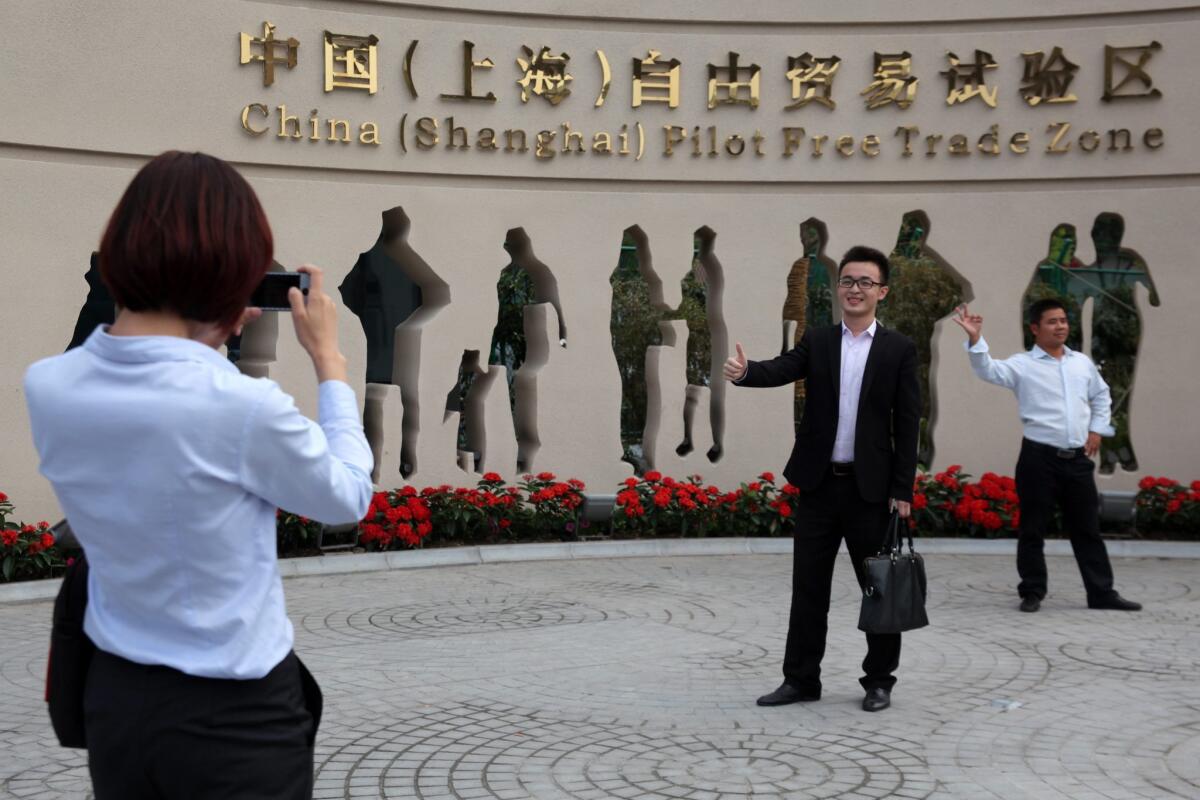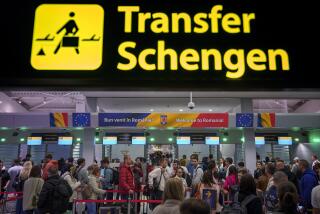Questions linger about China’s new Shanghai free-trade zone

SHANGHAI — The Chinese government officially opened a new free-trade zone in Shanghai on Sunday that is long on hype and short on detail about how it will boost the economy.
The 11-square-mile zone is in the northeastern fringe of Shanghai in an industrial zone near the international airport.
Among other features, the free-trade zone is supposed to make it easier for foreign companies to open travel agencies, theaters, banks, brokerage houses, telecommunications firms, sell health insurance or make video game gadgets — businesses that were all restricted to Chinese companies or joint ventures. In all, 18 different industries are to be liberalized.
However, economists say the big question is whether this will mean that companies registered in the free-trade zone can sell to the entire Chinese market — which would be a major opening — or if they are completely restricted to the zone.
“A number of people are scratching their heads about what this means. The Chinese have been saying they are going to do something bold, but there is precious little detail on exactly what,” said Patrick Chovanec, managing director at New York-based Silvercrest Asset Management and a specialist in the Chinese economy. He believes that the new Chinese government, in place since March, rushed the opening of the long-anticipated free-trade zone without having finalized the details.
“They were in a hurry to demonstrate that the reform process is moving forward under the new leadership, even though they were not quite ready,” said Chovanec.
The idea is to allow China’s policy planners to dabble with economic reforms, such as making Chinese currency fully convertible, freeing up interest rates and easing restrictions on capital flow.
“The zone should function as a test field for reforms and an open economy that would provide experience that can be duplicated and promoted nationwide,” said a Chinese government statement released on Friday.
Sunday’s opening ceremony was presided over by Commerce Minister Gao Hucheng, suggesting a soft opening, since the chief architect of the project, reform-minded premier Li Keqiang, was not in attendance.
Political infighting had reportedly delayed the opening and muted some of the more ambitious economic proposals, such as allowing freely convertible currency.
Early reports claimed unrestricted Internet access would be allowed, including banned sites such as Facebook and Twitter, but the government announcement Friday stated clearly that there would be no special rules for Internet use.
Although the Shanghai experiment is billed as the first of its kind, China has dozens of special economic zones that offer varying breaks from regulations and taxes. The best known was the Shenzhen zone, opened in 1978 by Deng Xiaoping as a prelude to China’s dramatic opening to the global economy.
From a business standpoint, potentially the most exciting aspect of the Shanghai zone is the promise that it could ease conditions for foreign companies that have long complained of the difficulty of operating in China.
“The highlight of the Shanghai FTZ is that it is an open platform where foreign and Chinese companies can compete on a level playing field,’’ Citibank economist Shen Minggao was quoted by the Chinese state media as saying.
ALSO:
Pakistan: Car bomb kills at least 43 in Peshawar market
Iranian President Hassan Rouhani returns home to mixed reviews
Security Council votes unanimously to destroy Syrian chemical weapons
More to Read
Sign up for Essential California
The most important California stories and recommendations in your inbox every morning.
You may occasionally receive promotional content from the Los Angeles Times.










